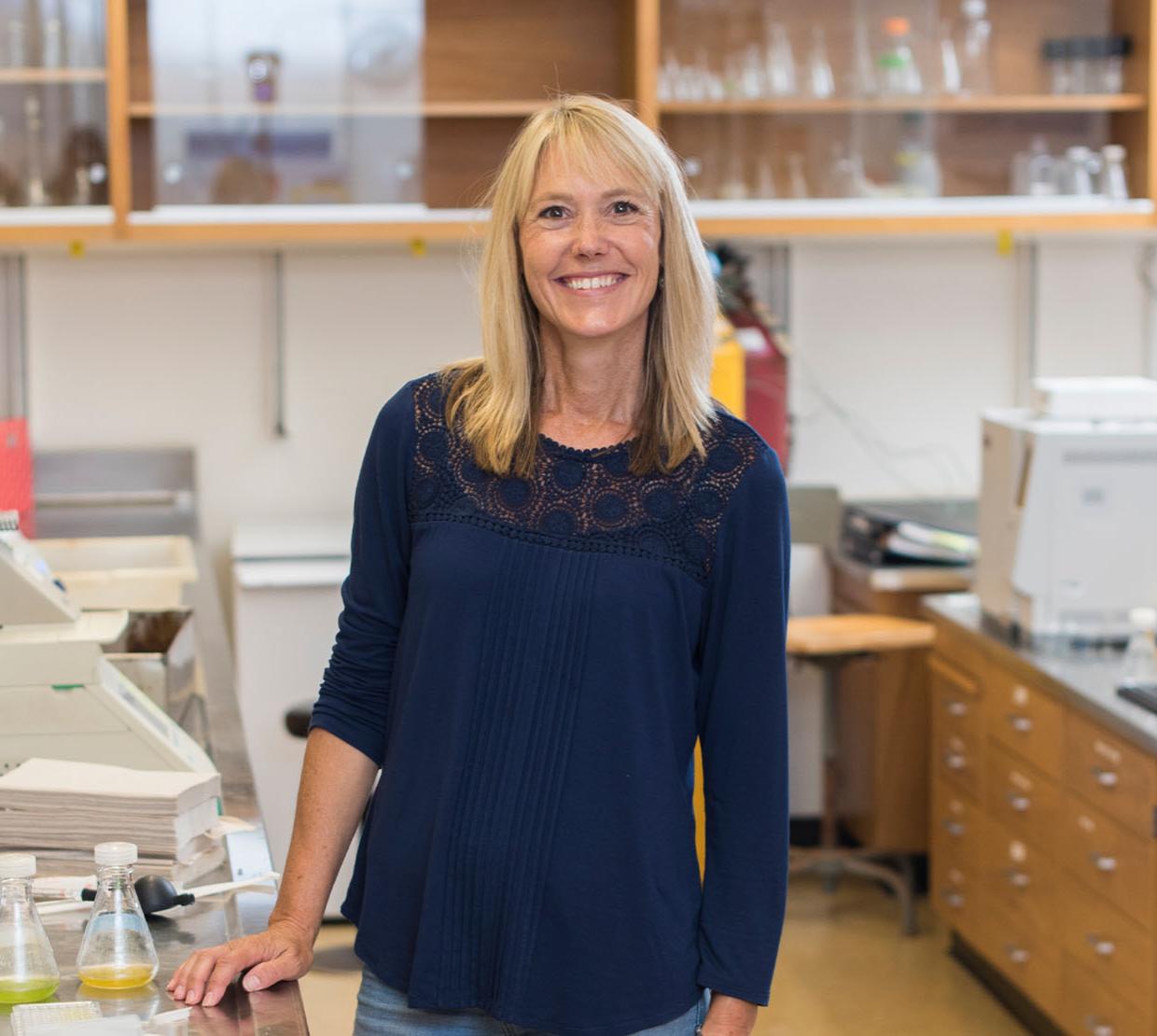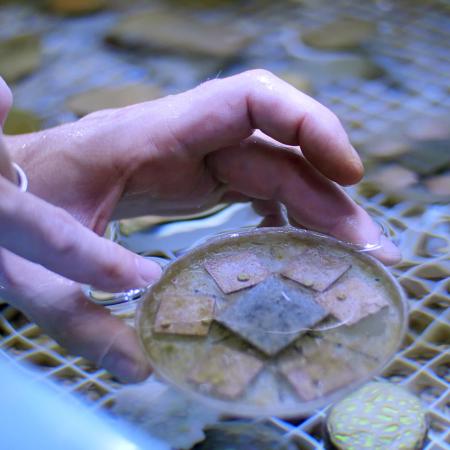The College of Science is thrilled to announce that Associate Professor of Microbiology Kimberly Halsey has been appointed as the inaugural Excellence in Microbiology Faculty Scholar. With this new endowed position, Halsey will advance excellence in her research and teaching at Oregon State for a term of five years, through November 11, 2026. A generous sequence of donations from an anonymous donor enables the appointment of this inaugural faculty scholar.
Halsey has a strong, highly visible and well-funded research program focused on understanding the processes that control the flow of carbon and energy through the marine carbon cycle. She has co-discovered the keys to diatom sexuality, predicted how phytoplankton will respond to climate change and developed methods to detect toxic algal blooms before they become harmful to humans and ecosystems.
“Dr Halsey’s cutting-edge research of the potential for real-time, automated volatile organic compound detection as early-warning signals of toxic harmful algal blooms in freshwater and marine ecosystems will help agencies and scientists prepare and protect the public," said Roy Haggerty, dean of the College of Science.
“In addition to her research accomplishments, she is a dedicated and passionate teacher who has introduced the unseen world of microbes to some 1,500 total students over the years, using creative teaching methods and an empathic approach to earn high student ratings, even in large foundational classes. She is an excellent choice to receive this position,” he added.
At the height of the pandemic, Halsey actually increased student engagement, implementing “Meet a Microbiologist” interviews to fill 10 minutes before every Zoom class. Faculty, alumni and graduate students joined these sessions, talking about their research and experiences in the field of microbiology. “Students in droves tuned in early” to catch the interviews, she said.
Halsey has also proven her interest and concern for the growth of the College and its Diversity Action Plan through impressive committee work. She has led the graduate admissions committee for the Department of Microbiology for the last six years, implementing a holistic application review process that increased minority representation in the program from 8.5 to 23.5%. Reviewing 70-100 applications each year and writing grants to obtain fellowships and scholarships for minority graduate students, Halsey demonstrated her “commitment to OSU’s growth and success, which is rooted in prioritizing education and training for all students,” she said.



